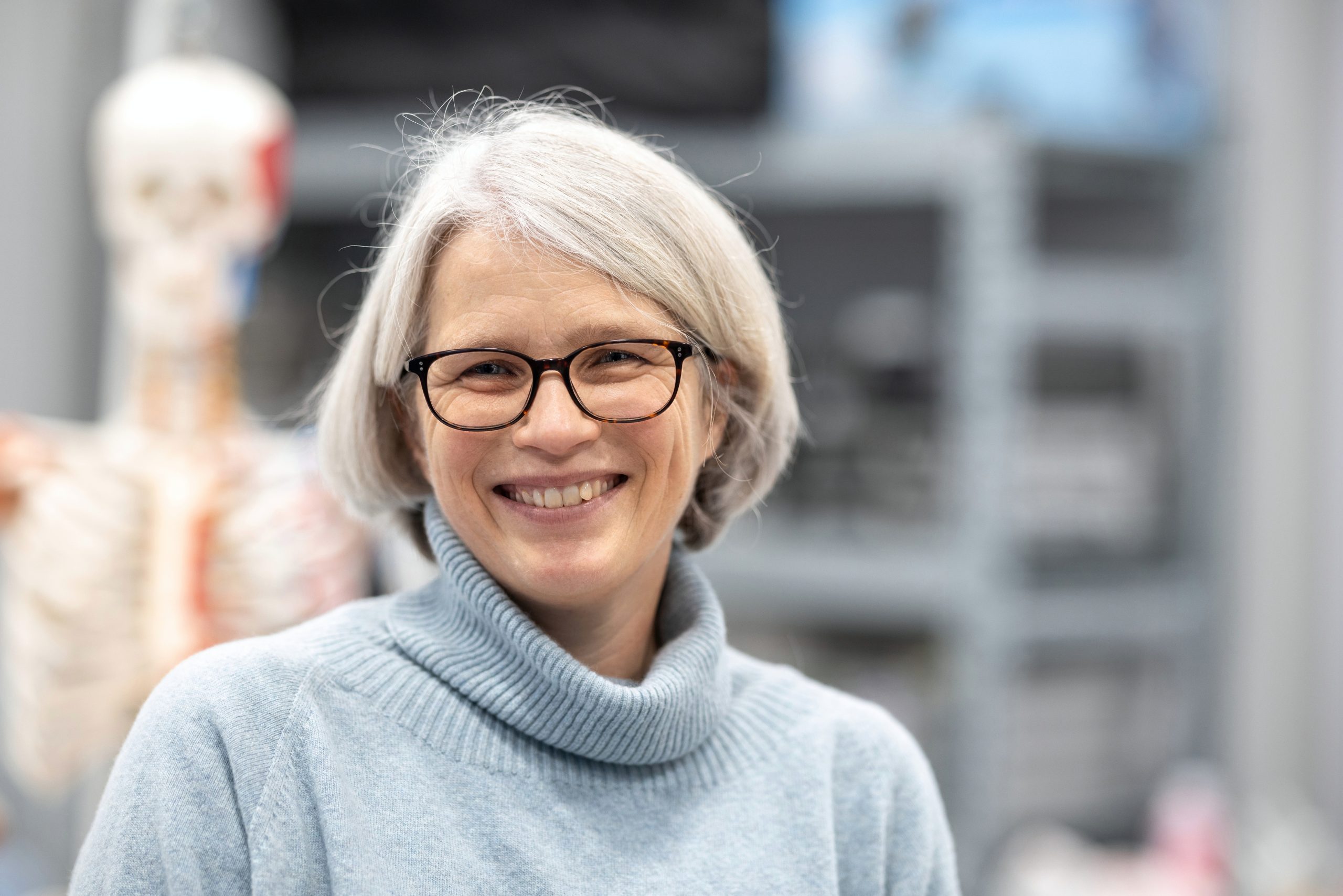
To mark National Fitness Day, former NHS physiotherapist and elite sports researcher, Professor Alison McGregor from the Department of Surgery and Cancer, reflects on her lifelong passion for physical activity. She explores the benefits of staying active as we age, offering practical advice on breaking sedentary habits and maintaining fitness throughout life.
My career began as a physiotherapist in the NHS, but I dreamed about working in sport. At that time, I played a range of racquet sports and hockey. Oddly enough my engagement with elite sport came through my research career rather than my academic career. For nearly 18 years, I worked with elite rowers and the GB rowing team. In 2012, I had the honour of running with the Olympic torch in London, representing Imperial.
My passion for sport and activity persists, and although I no longer compete, I run most days, cycle to work and occasionally go on long hikes and expeditions to stunning parts of the world including Kilimanjaro in Tanzania, Machu Picchu in Peru, the Manaslu Circuit in Nepal and Hadrian’s Wall which is closer to home. But why do I remain so active as I get older?
We all know that physical activity is good for our health and wellbeing. National Fitness Day is a great time to think about our lifestyle choices, particularly our balance of physical activity and sedentary activities. Sitting for more than 6-8 hours – which many of us do during the average working day – is not good for us. So, how do we change this?
Being physically active does not necessarily mean participating in sports, although many of us may have been inspired to take up a new sport following the Paris Olympic Games. Physical activity can simply be any activity that gets us moving and using our muscles and breaks the cycle of sitting for long periods.
Changing our behaviours and establishing a habit of physical activity can be hard, and sometimes we need to get fit to exercise. Fortunately, there are many tools available to support people in becoming more active like the NHS Couch to 5K plan, as well as apps to increase your walking. Smart watches and other wearable tech that keep track of your daily step count and activity levels are also useful. So, don’t let past inactivity stop you from having a go. Move Imperial also have activities like the Big Step Challenge to help motivate you and those around you to get more active.
For me, being active has always been part of my life and is a daily habit. Exercise first thing sets me up for the day ahead. However, when I got a smart watch, I realised how inactive I was for the rest of the day. Now, I also cycle to and from work, which breaks up my day and helps me switch off from work. It’s also good to break up the periods of sitting during the day – try using a standing desk, get up to make a cuppa, or try a short walk during your lunch break. Avoid lifts at work and use the stairs instead.
Physical activity offers numerous physical benefits, such as keeping your joints and bones strong, and mental health benefits, like reducing anxiety and stress. It also aids in recovery when you have been ill. Some people become more active or start exercising to lose weight but forget that as you exercise, you develop muscle, and you may feel hungrier and eat more. That said physical activity can help control the weight we can gain as we age and our metabolism slows down. Reduced activity and changes in metabolism with age can lead to weight gain!
It’s hard to keep the activity habit going and maintaining fitness does get tougher with each passing year, but it’s worth it!
Professor Alison McGregor is the Head of the BSc Medical Biosciences Undergraduate Programme and Director of Undergraduate Science at Imperial’s School of Medicine and a Professor of Musculoskeletal Biodynamics within the Department of Surgery and Cancer.